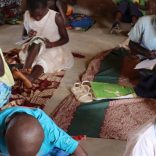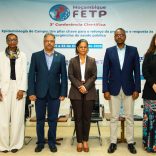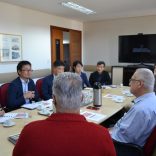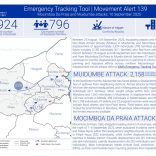Mozambique: UN warns of "relentless cascade of emergencies"
Mozambique: What has changed since the murder of Carlos Cardoso?

Photo: DW
- November 22nd has become a day of reflection for journalists in Mozambique. Exactly 21 years ago today, Carlos Cardoso was murdered in an upmarket part of Maputo because of a journalistic investigation.
Editors of some Mozambican newspapers say that November 22 will always be central to investigative journalism and press freedom in the country.
It was in the early evening of this day that, in 2000, journalist Cardoso Cardoso was murdered on Avenida dos Mártires da Machava in central Maputo. The journalist was leaving the newsroom of the newspaper Metical, of which he was the owner, when he was shot in his vehicle with a machine gun. The crime took place just as Cardoso was gathering information about a US$14 million [€12 million] fraud at the former Banco Commercial de Moçambique.
Journalist Egidio Plácido associates this date with the struggle for press freedom in Mozambique. The executive editor of the weekly Zambeze believes that exercising the profession [of journalism] in Mozambique still entails difficulties. Plácido cites, for example, the recent case involving Mediafax and Canal de Moçambique, which published an opinion article on former President Armando Guebuza.
“Journalists were brought to court just for having replicated an opinion of an economist from the Institute of Social and Economic Studies,” he recalls.

Change of tactics
Carlos Cardoso was a founding member of the Mediacoop group – joined by the electronic daily Mediafax and the weekly newspaper Savana. The current editor of Savana, Francisco Carmona, has no doubt that political power has changed tactics to intimidate journalists.
“They no longer target [the journalists] directly, as they did with Cardoso, because they learned a lot from it. Making journalists interrupt their jobs in newsrooms to go to court is also a way of handcuffing words. It’s a form of intimidation,” Carmona says.
The impression is that, since the murder of Carlos Cardoso, investigative journalism in Mozambique has been marking time at best. Plácido understands that the most experienced professionals in this field, who were guided by investigative reports, prefer to be bonded to political power.
For the Zambeze editor, there is a certain political dependence on the journalist. “If we look at it, the most experienced journalists in the country are advisers to politicians. There remain the less experienced ones, [who] do not have the tools for investigative work,” Plácido complains.

Effort of the new generation
Despite their lack of experience, less experienced journalists still try to bring well-researched news stories to press. For the Zambeze editor, this effort is Carlos Cardoso’s great legacy.
“In addition to that is the [legacy of the] courage he had to confront political power. These are values that almost no one else will be able to fulfil. [Cardoso] had a unique way of dealing with these matters. It is true that something is being done. There are some other good journalists who do more or less what Cardoso used to do,” he says.
Francisco Carmona recalls that Cardoso’s murder in 2000 was a message from organised crime to journalists, which is why there was panic in newsrooms at the time. On the other hand, these days, Mozambican journalists are increasingly courageous. For the editor of Savana, the consolidation of this “courage” was a gradual process, but visible today.
“Just look at how the media is dealing with the case of the hidden debts, which involves highly powerful people and is centred on the Mozambican secret services. There are journalists who continue to denounce the big scandals. That’s why we have this trial,” Carmona remarks.
Six persons were sentenced in 2003 to between 23 and 28 years in prison for the murder of Carlos Cardoso.
Read: Press Freedom Award for Mozambique’s investigative reporter Matias Guente












Leave a Reply
Be the First to Comment!
You must be logged in to post a comment.
You must be logged in to post a comment.